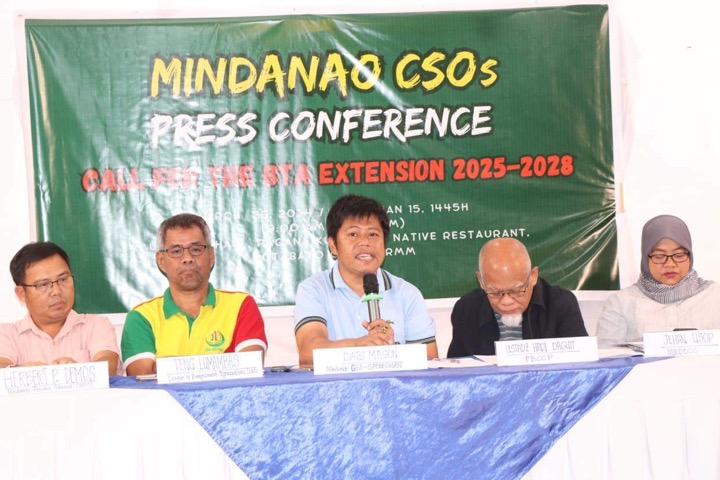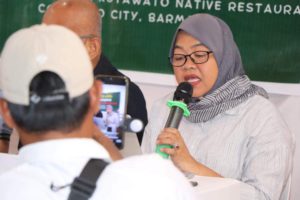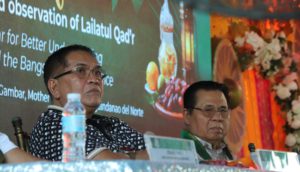
“Reflecting on a Decade: The Continuing Journey of the Comprehensive Agreement on Bangsamoro”

A decade ago, amidst conflict’s echoes and the weight of history, the Comprehensive Agreement on Bangsamoro (CAB) emerged, embodying determination, compassion, and hope. It marked a transformative moment in Philippine-Moro Islamic Liberation Front (MILF) relations, promising a peaceful partnership. Now, on its 10th anniversary, we acknowledge that while signatures may have dried, the journey to enduring peace persists. True success lies not in mere signatures but in sustained dedication to local ownership and inclusive participation, empowering the Bangsamoro, Indigenous Peoples, and Settler communities to shape their collective future.
As all eyes turn towards the leadership of the Bangsamoro government, they found themselves walking a tightrope, tasked with introducing necessary changes, structural reforms, while also managing the lofty expectations of the populace and fostering inclusive participation and quelling lingering conflicts post-peace agreement signing is no small feat.
Amidst the resolute leadership of the MILF, BARMM has become a top economic performer, ranking 10th nationally for growth in 2022. The progress witnessed is a direct result of the relative peace nurtured under the leadership of the MILF, who have diligently pursued the path of normalization. However, even as strides are made in its implementation, myriad challenges emerge to test the resolve of all involved.
While the political track has concluded with the passing of the Organic Law, the normalization track significantly lags behind. Delays stemmed from struck-out provisions during deliberations on RA 11054. Effective implementation demands commitment from both Philippine and Bangsamoro governments, necessitating adherence to shared commitments outlined in the CAB. Both parties must pull their weight. As representatives of civil society organizations (CSOs), we urge the Philippine Government, the BARMM Government, and the MILF leadership to prioritize addressing the delays in the normalization track before proceeding with the 2025 election. Among the most critical issues to be addressed are:
1. The disbandment of private armed groups (PAGs), crucial for enduring peace, as their existence could exacerbate conflicts, especially during elections, thereby undermining peace initiatives, including those led by the MILF.
2. The recent deployment of AFP personnel from Luzon to Mindanao has sparked concerns, emphasizing communication gaps and the necessity for seamless cooperation between security forces and the MILF. Moreover, the MILF contends that policing provisions in the BOL diverge from CAB principles, an ongoing issue for discussion.
3. Policing provisions in the BOL deviate from CAB principles, a matter still under discussion. The lapse of the five-year police recruitment agreement adds uncertainty to recruitment numbers, despite 7,145 successful candidates from MILF and MNLF passing the NAPOLCOM test.
4. In the initial three phases, a total of 26,132 MILF combatants,4,625 weapons DECOMMISSIONED and 6,317 pieces of ammunition DISPOSED of. However, it’s crucial to recognize that decommissioning is just one aspect. We must also address the socio-economic provisions for these combatant
5. Lack of tangible projects in the transformation process highlights the need for support from ministries and the government to execute existing plans effectively.
6. The call for blanket amnesty aims to expedite the peace process and build confidence.
7. There is no mechanism for investigating human rights violations outside BARMM, resolving conflicts remains challenging. Furthermore, establishing both regional and national mechanisms is essential to ensure the synchronized implementation of programs.
The integrity of future elections in the Bangsamoro region remains uncertain amidst the influence of powerful clans and pervasive allegations of vote-buying and obstruction. Will upcoming government elections uphold peacebuilding efforts or lead to setbacks due to inadequate preparation? Establishing a strong regional bureaucracy is vital to address historical injustices and ensure fair democratic processes.
Continue MILF’s efforts, extend transition period
The 2014 peace agreement between the Philippine Government and the MILF signifies more than just signatures—it represents a commitment to empower and unite the Bangsamoro, Indigenous Peoples, and Settler communities in shaping their future.
The MILF leadership successfully united leaders from various groups under one working parliament. Spearheading legislative initiatives like the Bangsamoro Revenue Code and the Bangsamoro Indigenous People Development Act of 2024, which is nearing approval after passing the second reading, ensures indigenous peoples’ participation in the Bangsamoro parliament. Despite controversy, the MILF’s innovative provisions in the Bangsamoro Electoral Code aim to curb political dynasties, fostering a more democratic environment. However, implementing these initiatives requires additional time and resources, especially in the normalization track. Extending the transition period offers an opportunity for both parties to renew their commitment and review collaborative efforts.
As we mark the 10th anniversary of the Comprehensive Agreement on Bangsamoro, let’s recognize its enduring significance and the progress achieved. We urge the Philippine Government, BARMM Government, and MILF to extend the transition period until 2028, vital for further growth and harmony. Let’s commit to reforming foundational institutions, empowering people for a democratic election in 2028 that truly represents the voices of the Bangsamoro, Indigenous Peoples, and Settler communities —a coexistence that enriches our region.

